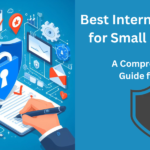The popularity of remote work has skyrocketed, introducing new cybersecurity risks. It’s essential to follow cybersecurity best practices for remote workers to safeguard your work, personal information, and devices.
Below are several easy-to-follow key practices and action items needed to uphold these best practices. Let’s get started…
Table of Contents
1. Use a Virtual Private Network (VPN)
What it is:
A VPN encrypts your online connection, making it more difficult for hackers to intercept your data.
Actionable Advice:
- Choose a reputable VPN provider with strong encryption.
- Always connect to your VPN when working remotely or on public Wi-Fi, following the cybersecurity best practices for remote workers.
- Ensure the VPN is configured correctly for your company’s needs, via your company’s IT department.
2. Implement Multi-Factor Authentication (MFA)
What it is:
MFA requires multiple forms of verification before granting access to an account, ensuring an extra layer of security.
Actionable Advice:
- Enable MFA on all your work-related accounts.
- Use authentication apps or hardware tokens for stronger security, in line with cybersecurity best practices for remote workers.
- Regularly review and update recovery information.
Benefits
MFA ensures that even if someone knows your password, they cannot access your account without the second verification method. It’s a simple step that greatly enhances account security.
3. Regularly Update Software and Systems
What it is:
Outdated software can have vulnerabilities for hackers to exploit.
Actionable Advice:
- Enable automatic updates on your operating system and applications.
- Regularly check for updates on software that doesn’t update automatically, as part of cybersecurity best practices for remote workers.
- Consult with your IT department for any specific update policies. They often have insights into potential vulnerabilities and necessary patches.
Why it Matters
Updated software patches security holes and introduces enhancements that protect against newer threats. Keeping everything up-to-date is essential for robust security.
4. Maintain Strong Passwords
What it is:
Strong, unique passwords are vital for protecting your accounts.
Actionable Advice:
- Use a reputable password manager to generate and store complex passwords.
- Avoid using the same password across multiple sites.
- Change passwords regularly, especially after a known breach.
The Reasoning
Diverse and complex passwords ensure that even if one account is compromised, others remain safe. Remember, a chain is only as strong as its weakest link.
5. Be Aware of Phishing Attacks
What it is:
Phishing attacks trick individuals into revealing personal information, often by masquerading as trustworthy entities.
Actionable Advice:
- Be skeptical of unsolicited emails or messages, especially those asking for sensitive information.
- Use email filters and security tools that flag suspicious emails.
- Report suspected phishing emails to your IT department.
6. Secure Your Home Network
What it is:
Your home network can be a weak link if not properly secured.
Actionable Advice:
- Change default passwords on your router. They’re often easily guessed or found online.
- Enable WPA3 encryption if available. It’s the latest and most secure Wi-Fi protection.
- Regularly update your router’s firmware. Manufacturers often release updates that patch vulnerabilities.
7. Follow Company Security Policies
What it is:
Your employer may have specific security policies for remote work.
Actionable Advice:
- Familiarize yourself with your company’s remote work security guidelines.
- Attend training sessions if offered.
- Communicate openly with your IT department about any concerns or questions.
Conclusion | Cybersecurity Best Practices for Remote Workers in 2023
Remote working presents unique cybersecurity challenges, but by following these best practices, you can significantly reduce your risk. Stay informed, be proactive, and always consult with your IT department if you’re unsure about anything.
Feel free to ask for more details on any of the topics, or if you have any specific concerns or questions!
- Cybersecurity Best Practices for Remote Workers in 2023 - June 1, 2025
- CyberGhost vs ExpressVPN Showdown - June 1, 2025
- Is Incognito Mode Really Private? Unmasking the Truth - June 1, 2025










